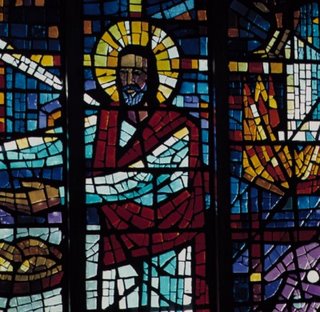LUTHER 1527 The Council of Nicaea, 325


LUTHER 1527
This should be quite enough to answer the fanatics. For since we prove and establish that the saying of Christ, “This is my body,” still stands firm, and that their best arguments are worthless, and bare and devoid of all proof, then surely all the other texts concerning Christ’s Supper also stand firm. For I have taken up the least and simplest of them, just to challenge the impotent, unsound, feeble prattle of the fanatics. So I treated this subject not without care also in my book against the heavenly prophets, and up to now no fanatic has refuted that book for me. I maintain, however, that they scorn it and do not read it, or if they do read it, they curl their lips and pass it by, on account of their great humility and fullness of all wisdom and holiness. -Martin Luther
The Council of Nicaea, 325.
Almost all the bishops subscribed the creed, Hosius at the head, and next him the two Roman presbyters in the name of their bishop. This is the first instance of such signing of a document in the Christian church. Eusebius of Caesarea also signed his name after a day’s deliberation, and vindicated this act in a letter to his diocese. Eusebius of Nicomedia and Theognis of Nicaea subscribed the creed without the condemnatory formula, and for this they were deposed and for a time banished, but finally consented to all the decrees of the council. The Arian historian Philostorgius, who however deserves little credit, accuses them of insincerity in having substituted, by the advice of the emperor, for (of the same essence) the semi-Arian word (of like essence). Only two Egyptian bishops, Theonas and Secundus, persistently refused to sign, and were banished with Arius to Illyria. The books of Arius were burned and his followers branded as enemies of Christianity.
This is the first example of the civil punishment of heresy; and it is the beginning of a long succession of civil persecutions for all departures from the Catholic faith. Before the union of church and state ecclesiastical excommunication was the extreme penalty. Now banishment and afterwards even death were added, because all offences against the church were regarded as at the same time crimes against the state and civil society.
HISTORY OF THE CHRISTIAN CHURCH Schaff Volume 3 NICENE AND POST-NICENE CHRISTIANTY A.D. 311-600
(Pages 629-630)

0 Comments:
Post a Comment
<< Home